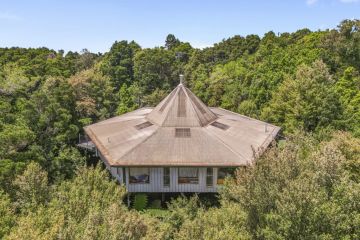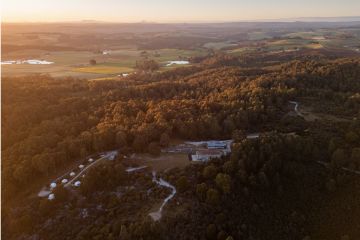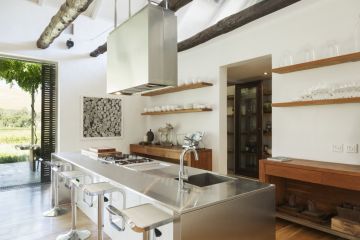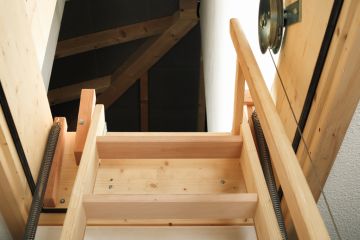Nothing short of genius: The tiny Glebe home that utilises curves for a sense of space

Situated on a site elevated above a sandstone cliff face overlooking Sydney city skyline, Glebe House by Chenchow Little presents as a small and simple, unassuming timber-clad box – albeit with intriguing curved windows that give away very little as to what one can expect to find inside.
What lies within is nothing short of a gobsmacking experience.
Chenchow Little’s strength lies in their ability to carve out spaces and create excitement within relatively small footprints. Their ability to inject life and bring poetry into inner-city dwellings is second to none.
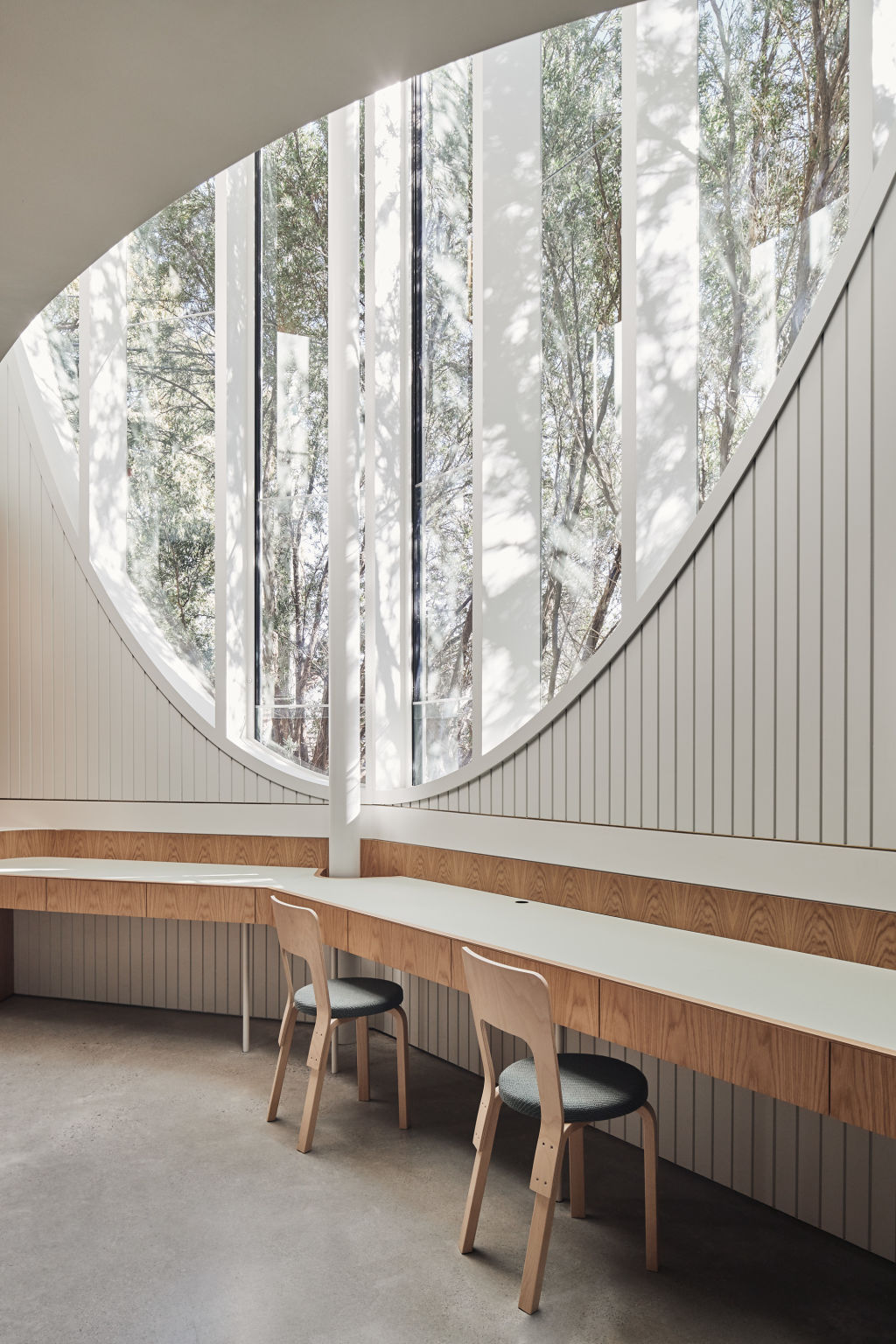
And what they’ve achieved with this 200-square-metre home is akin to what Michelangelo accomplished with his marble sculptures. What I’m trying to say here is that their work is sheer genius.
But excuse me for getting so ahead of myself. We really should start at the beginning.
Sydney’s inner-city suburb of Glebe is well-known for its Victorian terrace houses and notoriously narrows streets, with small allotments and the density of housing very high.
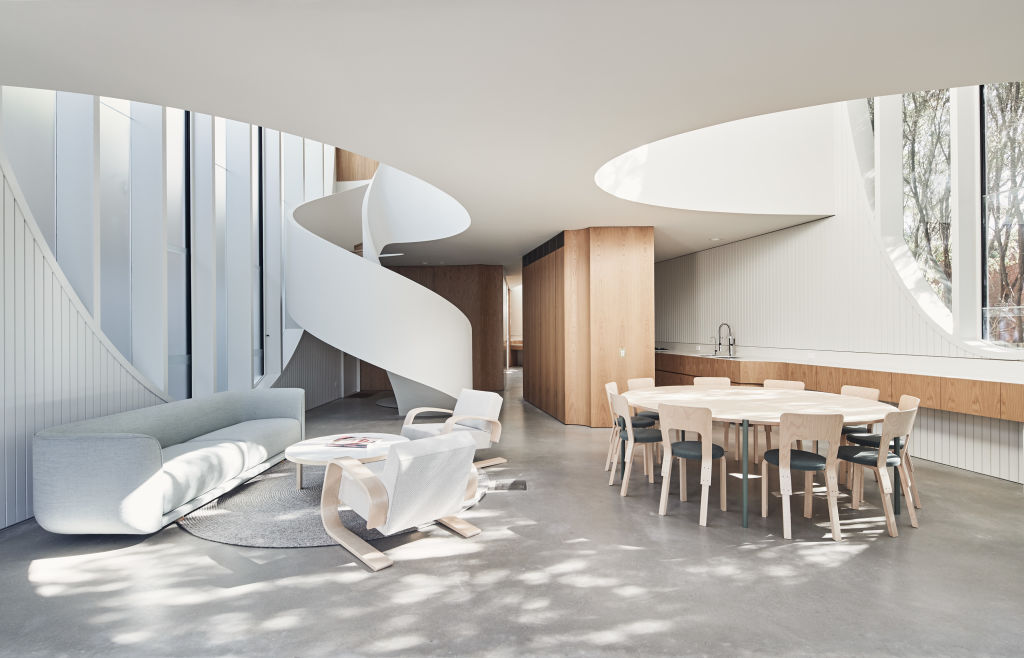
Chenchow Little began with a site overlooked by a typical Victorian terrace on the south while being elevated above 1980s public housing to the north. You know, probably not the sexiest of existing conditions one would hope for.
Chenchow Little demolished and replaced an existing dilapidated cottage with a new, compact two-storey four-bedroom dwelling for a family of five.
An impressive achievement for a site that measures just 374 square metres, while delivering a home that doesn’t feel squeezed within an inch of its life, despite the stringent planning controls and considerable site constraints.
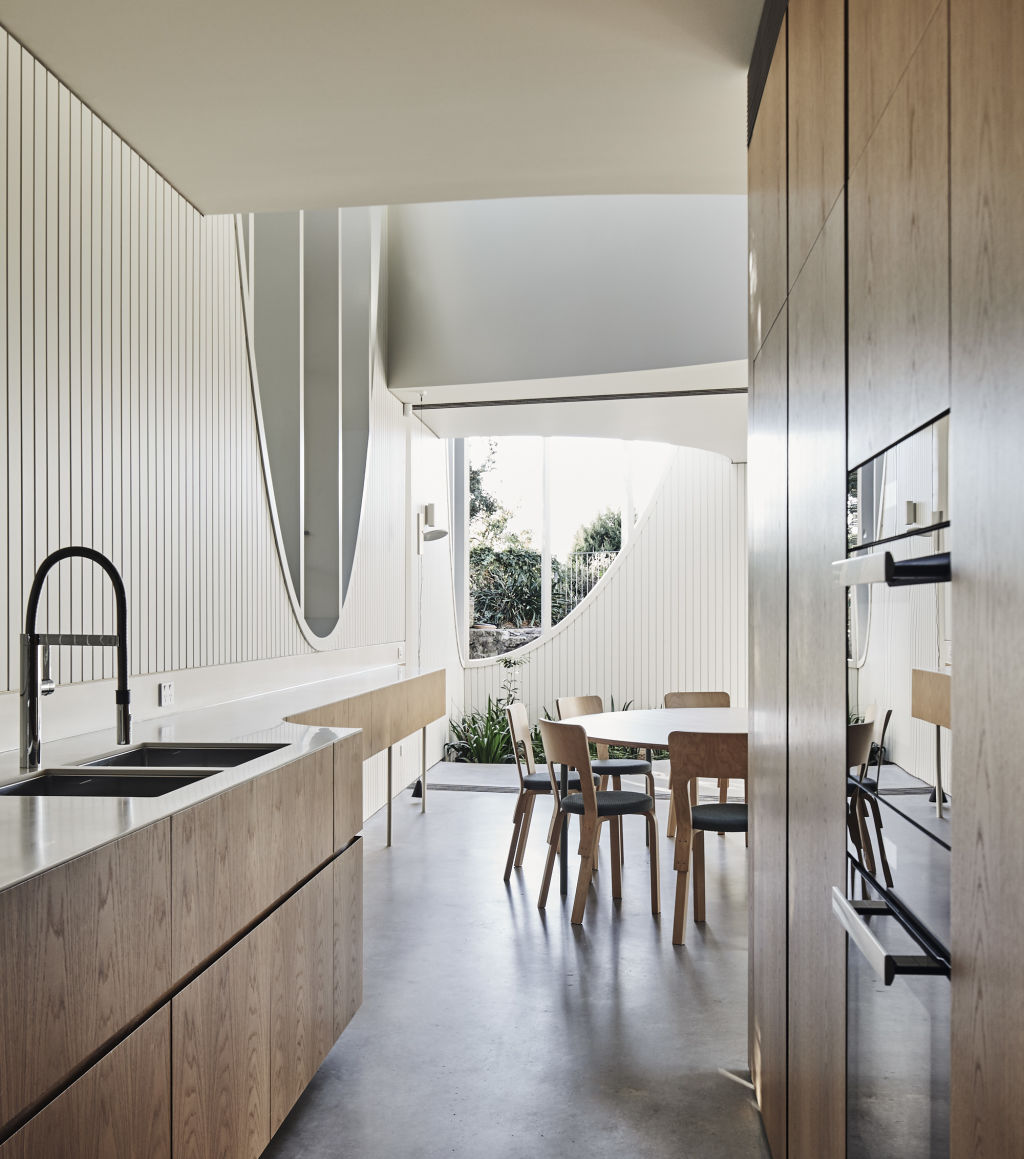
The building envelope replicates the geometry of the triangular-shaped block, shaped by minimum setback controls for each side, and height limited by view-lines from neighbouring dwelling.
Yet from here, the interior has been articulated with such inspired interventions; one would have a hard time believing the architects had to overcome any planning difficulty at all.
Arched windows reference the arched openings and entrance porticos of the neighbouring terrace house.
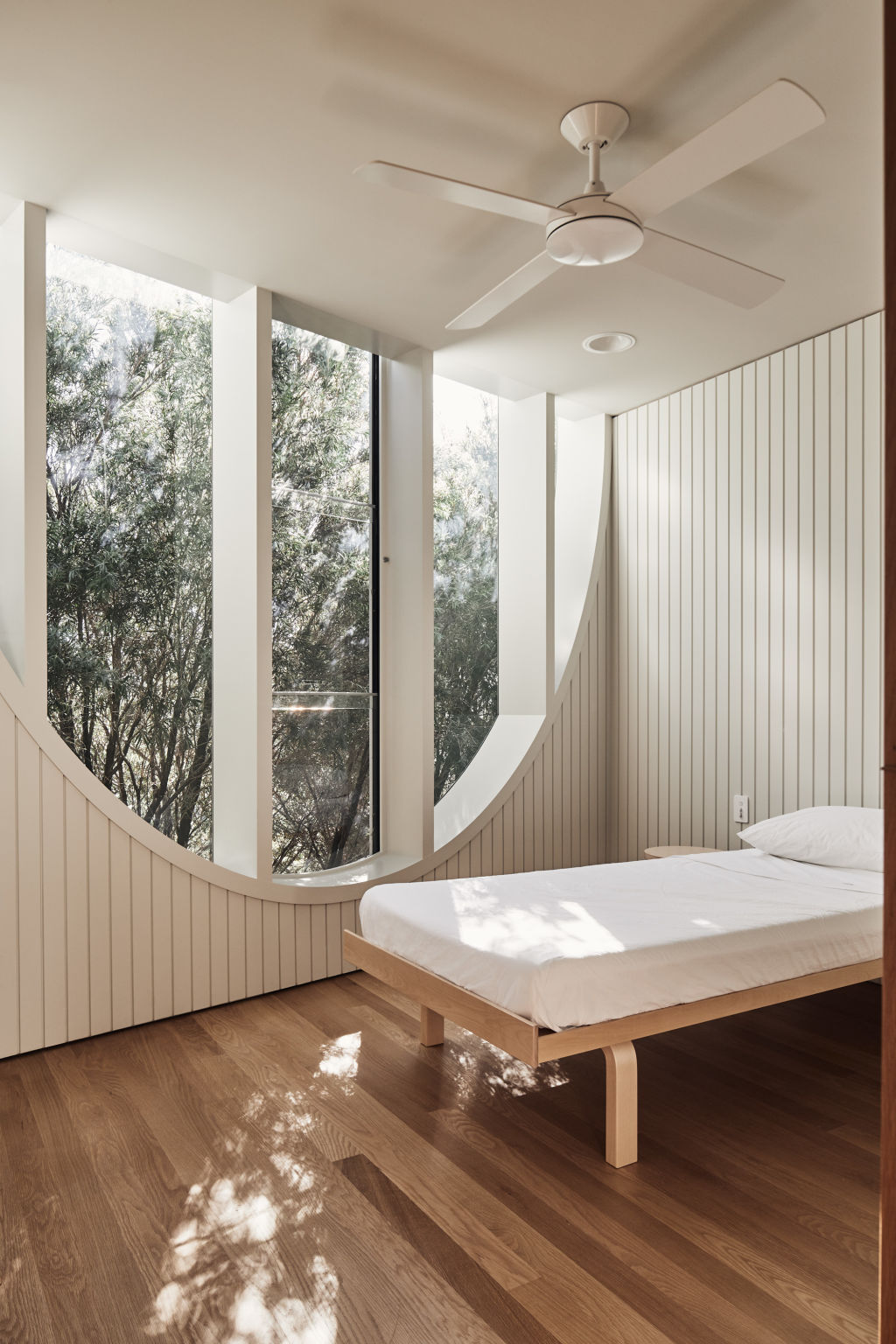
But Chenchow Little take the concept of traditional Victorian arched openings to a new level by inserting them within the Glebe House in both elevations and on the plan.
The arched windows align with arched cutouts in the floor plate to create dramatic three-dimensional internal voids. A double-height void maximises natural light into the central space, while a sculptural spiral staircase following the curved form established by the void cutout.
The perimeter interior and exterior walls, clad in white-painted vertical timber panels, are an homage to the materiality of the traditional cottages in the area.
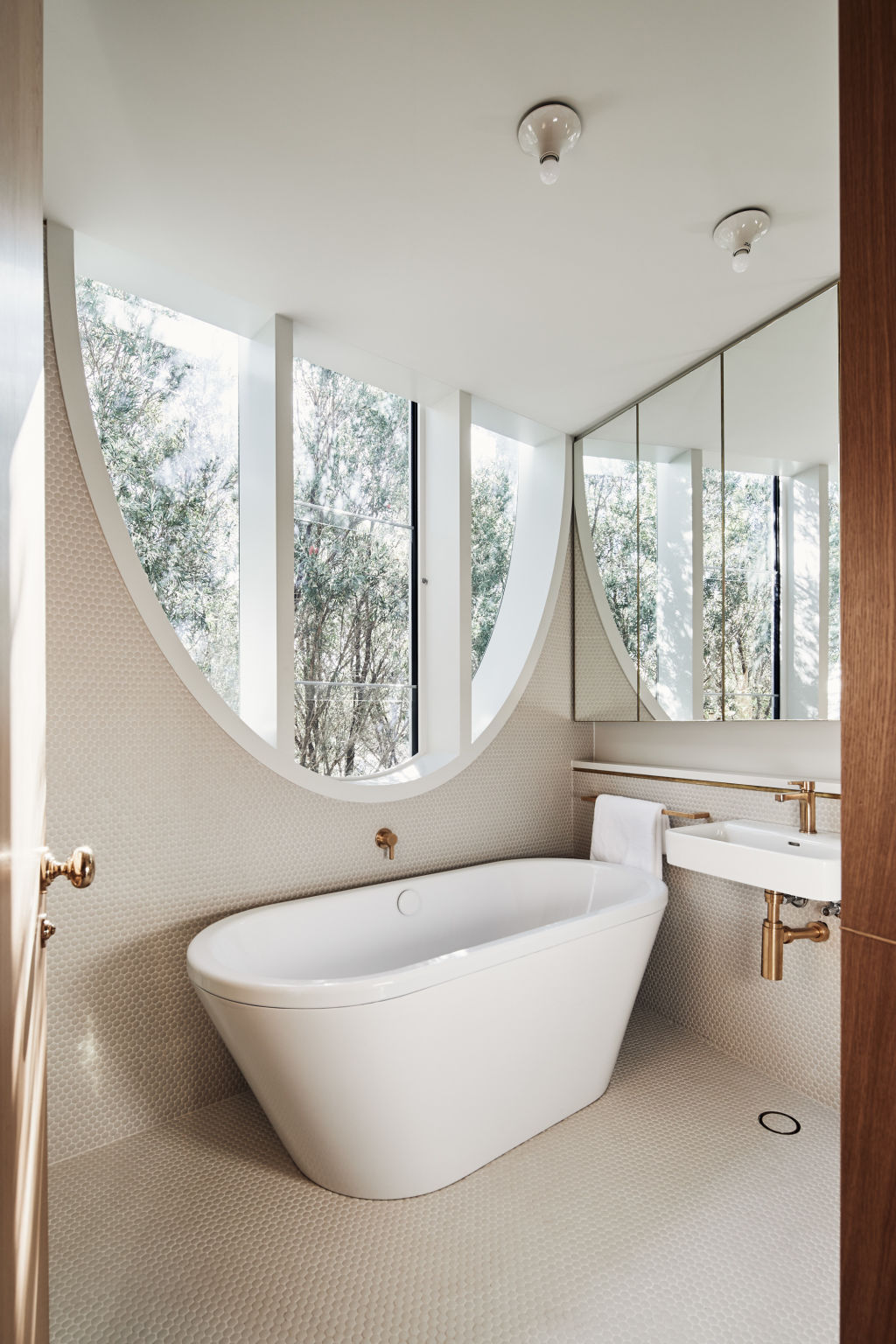
They add a lo-fi feel to the sophisticated and unapologetically contemporary aesthetic found elsewhere. The mostly white material palette is broken up with the use of timber panelling found on joinery and internal walls that extend into the upstairs space where timber flooring replaces concrete located downstairs.
Rather than view surrounding properties, the scale and positioning of Glebe House allow the inhabitants to look out onto greenery, creating a deceptive impression of being more tucked away in nature than the reality belies. Work of multi-level genius, indeed.
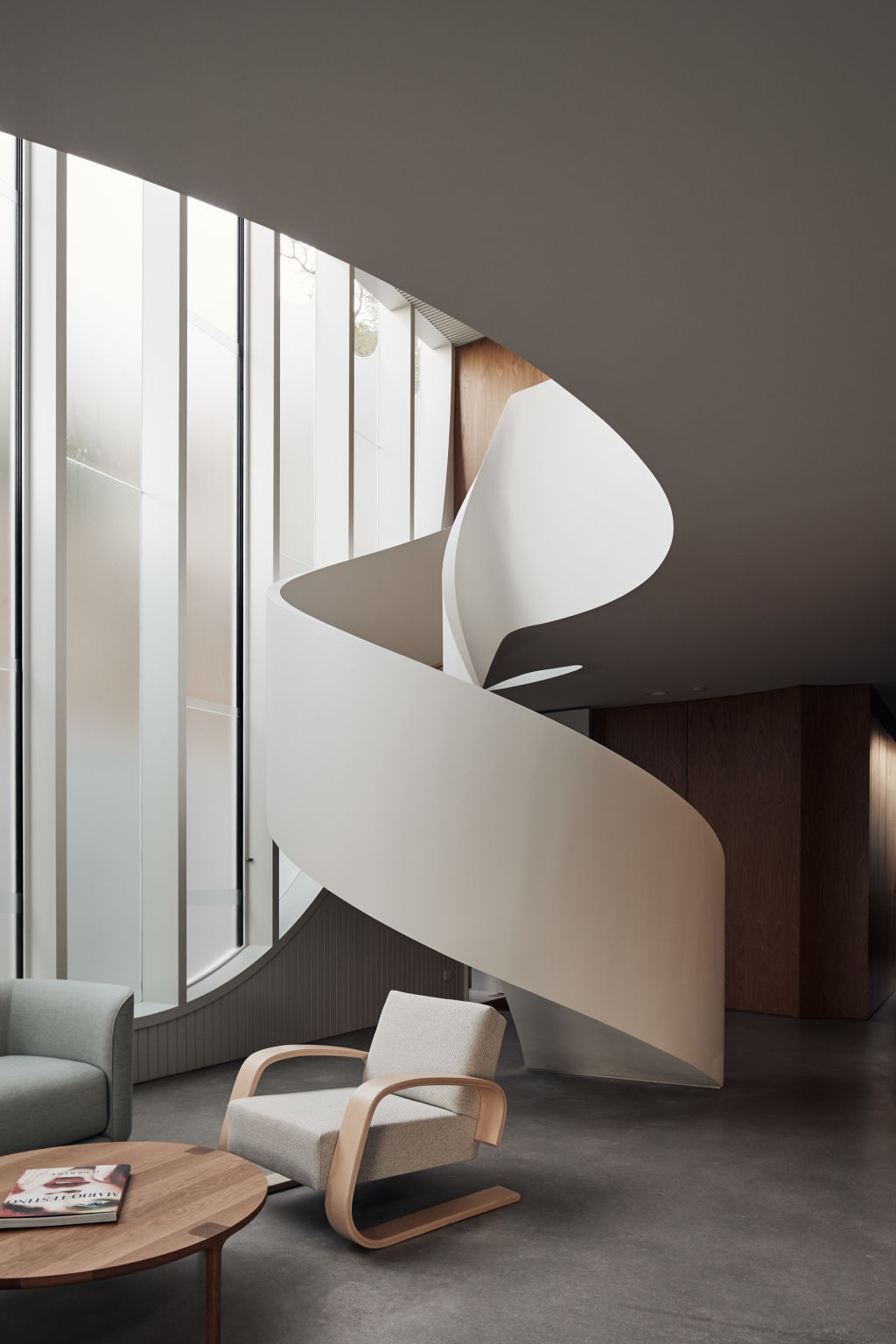
We recommend
States
Capital Cities
Capital Cities - Rentals
Popular Areas
Allhomes
More
- © 2025, CoStar Group Inc.
